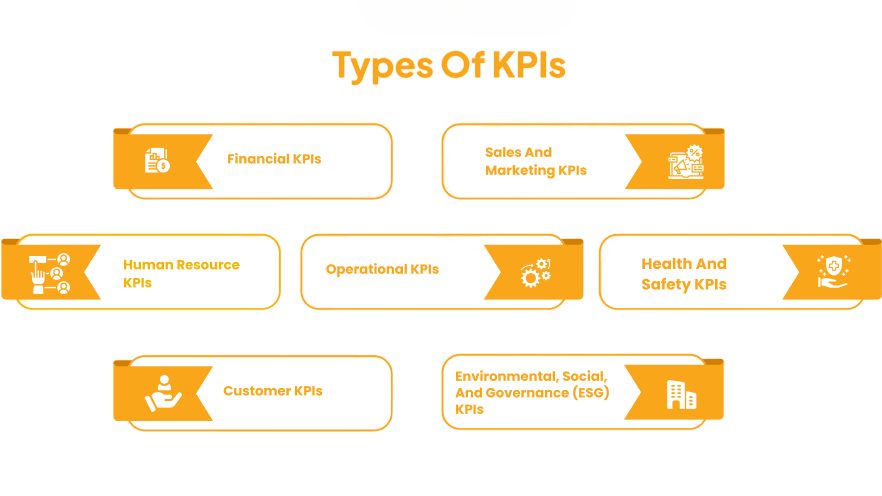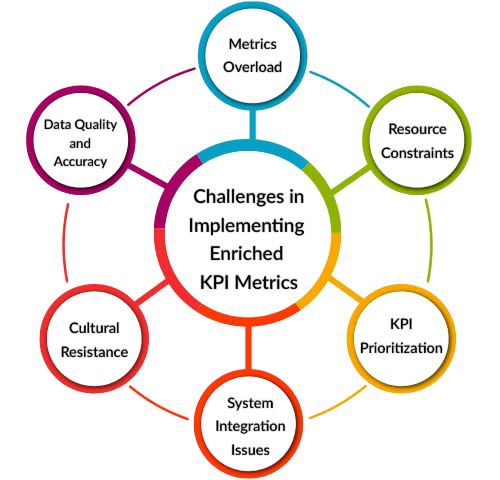
- Understanding KPI: Definition and Importance
- Why KPIs Matter in Digital Marketing
- Types of KPIs in Digital Marketing
- How to Set Effective KPIs
- Essential Digital Marketing KPIs to Track
- Measuring and Analyzing KPIs
- Common Challenges with KPIs
- Aligning KPIs with Business Goals
- Using KPIs to Optimize Marketing Strategies
- Future Trends in KPI Measurement
- Conclusion
Understanding KPI: Definition and Importance
Key Performance Indicator (KPI) is a measurable value that demonstrates how effectively an individual, team, or organization is achieving key business objectives. In the context of digital marketing, KPIs quantify the success of various marketing efforts whether it’s increasing website traffic, generating leads, improving conversion rates, or enhancing brand engagement performance metrics mastered in Digital Marketing Training, where learners track key indicators, align campaigns with business goals, and optimize strategies for measurable impact across digital channels. KPIs are not just numbers; they provide actionable insights that help marketers make informed decisions, optimize campaigns, and justify budgets.
Ready to Get Certified in Digital Marketing? Explore the Program Now Digital Marketing Online Training Offered By ACTE Right Now!
Why KPIs Matter in Digital Marketing
In the fast-changing world of digital marketing, marketers use key performance indicators (KPIs) as essential tools to turn vague strategies into clear success. By offering focused insights, KPIs help marketers pay attention to important metrics. This focus cuts out distractions and establishes responsibilities within teams an operational clarity essential to Video Marketing, where defined roles like creative director, videographer, designer, and scriptwriter ensure streamlined production, consistent messaging, and collaborative execution across campaigns that demand both technical precision and creative alignment. These indicators measure progress toward specific goals and help improve marketing campaigns through data analysis. Additionally, KPIs are crucial for clear reporting, enabling marketers to plainly share performance results with stakeholders and management. They also help justify the return on investment for marketing efforts. In the end, using strong KPI frameworks allows marketing professionals to make smart decisions, track real progress, and continually improve their methods in a competitive digital environment.
Types of KPIs in Digital Marketing
Different digital marketing activities require tracking different KPIs. Types of KPIs can be broadly categorized into: awareness metrics like impressions and reach, engagement metrics such as time on page and shares, conversion metrics including lead generation and sales, and retention metrics like repeat visits and subscriber growth performance layers aligned with Types of Content Marketing, where each content format blogs, videos, infographics, case studies serves distinct goals and demands tailored measurement to optimize strategy across the funnel.
Traffic KPIs
- Website Visitors: The number of people visiting a website.
- Source of Traffic: Breakdown by organic, paid, direct, referral, and social traffic.
- Bounce Rate: Percentage of visitors who leave after viewing only one page.
- Session Duration: Average time users spend on the site.
Engagement KPIs
- Page Views: Total pages viewed per session or over time.
- Click-Through Rate (CTR): Percentage of users clicking on a link, ad, or email.
- Social Media Engagement: Likes, shares, comments, and followers.
- Email Open and Click Rates: Measures interaction with email campaigns.

Conversion KPIs
- Conversion Rate: Percentage of visitors completing desired actions (form submissions, purchases).
- Cost Per Conversion: Average cost to acquire a conversion.
- Lead Generation: Number of qualified leads generated.
- Customer Acquisition Cost (CAC): Total marketing spend divided by number of new customers.
Revenue KPIs
- Return on Investment (ROI): Revenue generated compared to marketing costs.
- Customer Lifetime Value (CLV): The predicted net profit from the entire future relationship with a customer.
- Average Order Value (AOV): The average amount spent per transaction.
- Align with Business Objectives: Ensure KPIs directly support your company’s broader goals. For example, if the goal is revenue growth, focus on KPIs tied to sales.
- Be Specific and Measurable: KPIs should be clearly defined and quantifiable. Ambiguous metrics don’t provide actionable insights especially when it comes to Understanding Backlinks, where key performance indicators like referral traffic, domain authority, and link quality help evaluate SEO impact.
- Make KPIs Achievable and Realistic: Set goals that are challenging but attainable to keep motivation and focus.
- Time-Bound Targets: Assign deadlines or specific time frames to measure progress effectively.
- Prioritize KPIs: Don’t track everything. Focus on the few KPIs that truly impact your goals.
- Data Overload: Tracking too many metrics can overwhelm teams.
- Solution: Focus on key metrics that align with your goals.
- Misalignment with Business Goals: Tracking irrelevant KPIs leads to misguided strategies.
- Solution: Regularly review and update KPIs with input from leadership.
- Inaccurate Data: Poor tracking setup can produce unreliable data.
- Solution: Invest time in configuring analytics correctly and regularly audit data quality.
- Short-Term Focus: Overemphasis on short-term KPIs can ignore long-term growth.
- Solution: Balance KPIs to include both immediate and future objectives.
- If your goal is brand awareness, focus on impressions, reach, and social engagement.
- For lead generation, track form submissions, click-through rates, and cost per lead.
- For sales growth, prioritize conversion rates, customer acquisition costs, and revenue KPIs.
- AI and Machine Learning: Automated insights and predictive analytics will make KPI analysis faster and more precise.
- Cross-Channel Attribution: Better tracking of customer journeys across multiple touchpoints.
- Real-Time Analytics: Instant KPI reporting for agile marketing decision-making.
- Customer-Centric Metrics: More focus on customer experience, sentiment, and loyalty.
- Privacy and Compliance: Adapting KPI tracking to evolving data privacy laws and user consent regulations.
To Explore Digital Marketing in Depth, Check Out Our Comprehensive Digital Marketing Online Training To Gain Insights From Our Experts!
How to Set Effective KPIs
Setting the right KPIs is critical to their usefulness. Follow these steps:
Essential Digital Marketing KPIs to Track
SEO teams look at KPIs like organic traffic, keyword rankings, backlinks, and domain authority to gain important insights into website visibility and search performance. Marketers assess Pay-Per-Click campaigns using measures like click-through rates, quality scores, cost per click, and conversion rates. This helps them improve their advertising spending and effectiveness data-driven techniques taught in Digital Marketing Training, where learners analyze PPC metrics, optimize ad performance, and apply real-time insights to maximize ROI across paid media platforms. Social media managers evaluate their strategies by looking at engagement rates, follower growth, social shares, and overall reach and impressions. This information helps brands understand how their audience interacts online. Email marketers gauge performance through open rates, click-through rates, unsubscribe rates, and conversion metrics. Digital Marketing KPIs give a clear view of how well their communication works. Content marketers track KPIs such as time on page, social shares, lead generation potential, and bounce rates. This information shows audience engagement and content quality, allowing businesses to improve their digital marketing strategies and achieve meaningful results across different platforms.
Looking to Digital Marketing Training? Discover the Digital Marketing Expert Masters Program Training Course Available at ACTE Now!
Measuring and Analyzing KPIs
To get the most out of Key Performance Indicators (KPIs), organizations need a solid and organized measurement approach. They can use tools like Google Analytics, SEMrush, and specific dashboards to track performance effectively. By setting up automated reporting, businesses can regularly check important metrics and get real-time insights a strategic advantage highlighted in Remarkable Benefits of being a Content Marketer, where professionals leverage dashboards, performance analytics, and trend monitoring to refine content strategy, demonstrate ROI, and make data-driven decisions that elevate brand visibility and audience engagement. Comparing KPIs with past data and industry standards offers teams valuable context, helping them grasp the details of performance. This analytical process enables teams to spot new trends and possible issues, uncovering the key factors behind success or challenges. In the end, the aim is to turn data-driven insights into actionable strategies. This allows organizations to adjust campaigns quickly and keep improving their results.
Common Challenges with KPIs

Preparing for Digital Marketing Job Interviews? Have a Look at Our Blog on Digital Marketing Interview Questions and Answers To Ace Your Interview!
Aligning KPIs with Business Goals
Effective digital marketing KPIs are those that directly relate to your business goals. For example: qualified leads, organic traffic, time-on-site, conversion rate, and customer acquisition cost metrics emphasized in Inbound Marketing, where success is measured by how well content attracts, engages, and converts the right audience through value-driven interactions and strategic alignment with long-term growth objectives.
This alignment ensures marketing efforts contribute meaningfully to overall business success.
Using KPIs to Optimize Marketing Strategies
Key Performance Indicators (KPIs) are important tools for improving marketing. They do more than just measure performance. By regularly tracking KPIs, organizations can gain valuable insights that help them make better decisions. Marketing teams can spot channels and campaigns that are not performing well. This allows them to focus resources accurately and fine-tune budgets an essential capability outlined in All the Social Media Apps You Should Know, where marketers explore platform-specific costs, audience targeting efficiencies, and optimization strategies to allocate spend across Instagram, Facebook, LinkedIn, TikTok, X (Twitter), and emerging apps with precision and ROI accountability. Using data in this way enables professionals to test different messaging strategies, creative ideas, and targeting methods. This leads to better campaign performance. Additionally, KPIs help teams predict future marketing efforts and show clear results to key stakeholders with understandable data. By using KPIs as a practical framework, businesses can turn basic metrics into useful information that boosts marketing effectiveness and supports growth.
Future Trends in KPI Measurement
The field of KPI tracking and analysis in digital marketing is evolving rapidly:
Conclusion
Key Performance Indicators (KPIs) are fundamental to the success of any digital marketing initiative. They provide measurable goals, actionable insights, and a clear way to demonstrate the value of marketing efforts strategic capabilities developed through Digital Marketing Training, where learners define KPIs, apply performance frameworks, and align marketing outcomes with business objectives to drive accountability and growth. By understanding what KPIs are, how to set them effectively, and how to analyze and act on them, marketers can drive better results, optimize budgets, and contribute significantly to business growth. If you are embarking on a digital marketing journey or want to improve your current efforts, defining and tracking the right KPIs should be your first step.




